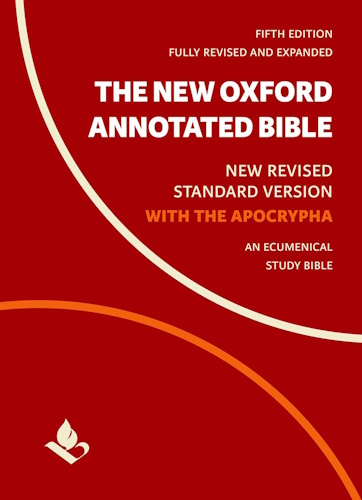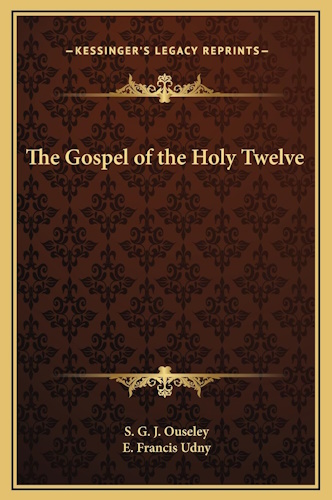
~ Explanatory Preface ~
To the New and Complete Edition
(Revised and Enlarged)
This "Gospel of the Holy Twelve" (Evangelists) of the Christian Dispensation is one of the most ancient and complete of early Christian fragments, preserved in one of the Monasteries of the Buddhist monks in Thibet, where it was hidden by some of the Essene community for safety from the hands of corrupters and now for the first time translated from the Aramaic. The contents clearly show it to be an early Essenian writing. This ancient community of the Jewish Church called Yessenes, Iessenes, Nazarites, or Nazirs, strongly resembling the Therapeutae, and the Buddhists, who practised community of goods, daily ablutions, daily worship, and renounced flesh eating, and strong drink and the sacrifice of animals, and the doctrine of "atonement" for the sins of some by the vicarious and involuntary suffering of others, as held by the Pharisees and Sadducees, and by the heathen before them; thus preparing the way for those Orders and Communities of men and women which have since arisen throughout the East and West, like cities set on hill, to shew the more perfect way to Christians living. in the world, notably those of S. Basil in the East, and S. Benedict in the West, and, with them, the Carthusians and the Franciscans, and before them all, the Carmelites (who had their headquarters on Mount Carmel) to whom they are similar in their customs, and even their dress, if not altogether identical with them, tracing their origin to Elias, abstaining from all flesh meats and strong drinks, whose symbol was, it is said, an iron cross in a circle, and among the animals, the Lamb and the Dove their special emblems. See Philo (in Loco) or Kitto's Cyclopaedia (art, Essenes), also Arthur Lillie's "Christianity and Buddhism."
That the contents of this most ancient Gospel set forth a higher moral and religious teaching, as the basis of the Christian Church, than any other that has come down to us, requires but the reading of eyes divested of prejudice, and the perception of a regenerate heart, and intelligent mind, to receive and appreciate. The giving of the New Law on the Holy Mount is a scene that, once read, can never be forgotten, though it was not "with blackness and thunder and the sound of the trump."
lnasmuch as this Gospel touches on many questions of vital moment now discussed in this age, and little known in those times, it may well be termed par excellence the prophetic and ethical Gospel, and critics and scholars will remember that the writings of Justin Martyn, Papias and others, distinctly speak of, and quote from, the "Gospel of the Hebrews" known otherwise as "the Gospel of the Twelve Apostles" and the "Gospel of the Nazarites," used then, chiefly in the Church at Jerusalem, and the original of Matthew's Gospel in Hebrew which we have in Greek. This identifies it as the original Gospel from which the others were more or less closely copied, with numerous variations and important omissions by accident, or design, to suit the corrupt taste of the worldly.
To those who may think it a difficulty, that the name of this notorious body (the Essenes) not less notorious than the Pharisees or Sadducees, so often spoken of, is not once mentioned either in this Gospel, or in the received four, the very silence ought to appeal, as an eloquent testimony to its origin.
It is the opinion, after much patient study and research of that learned traveller and author, Mr. Arthur Lillie, in his works on "Buddhism and Christianity" that "the earliest and only authentic Gospel must come from the Essenes, and all that is anti-Essene (in our four) is accretion."
This new and complete edition we have revised and enlarged, not only in the explanatory preface (itself enlarged from the second) but also by additional matter and corrections which escaped our notice in first issue, and also important notes, which may prevent misunderstanding by the unthinking, and the wrong thinking, who form the vast majority of readers in this age. These are now incorporated with this edition. The number of verses in each lecture have been better arranged, while the number of Lections remain the same. The writers have been at great pains to verify in the early Christian writers most of these older utterances of Iesus, strange in modern ears, as far as their present limitation would admit, many of them being utterly lost to the world till the present revelation.
Of Placidus (cir. 1326), he was known only by the Editor as that Carmelite monk, sitting occasionally by his bedside and discussing many questions. To the query, "Suppose that in these days of discovery of ancient documents some ancient and genuine MSS. were found in which it was clearly written, 'Joseph begat Jesus of Mary his wife, who was afterwards called the Christ,' Do you think the Church dogma of the immaculate conception would be imperilled to your mind?" he instantly replied, "Not in the least, the Church would in that case propound and define the immaculate conception of Joseph as well as his bride - the safeguard would be doubled." Judge of the Editor's surprise, when within six months after news came from the East of the discovery by Mrs. Lewis of a most ancient and undoubtedly genuine MSS. of the Holy Gospels, with these very words in the first chapter of St. Matthew, preceding the interpolation, without which the sense of the entire is evident and complete.
Of John Wesley (d. 1791) also it may be said that he, too, was of the number that ate not flesh nor drank strong drink. Writing to the Bishop of London in 1747 , he said: "Thanks be to God, since the time that I gave up the use of flesh and wine, I have been delivered from all physical ills."
As formerly, the writers and the transmitters of sacred Scriptures (in their purity for the benefit of humanity) were sometimes forced, by motive of prudence, to conceal their personalities while in the flesh, knowing well, that for a divine message, its own truth was the best evidence of genuine inspiration, and that by reason of its truthfully rebuking the cherished views of the many, they would meet with the usual reward from the ignorant and worldly-persecution of one kind or another - misrepresentation of motives, personal depreciation (the favorite refuge of those who cannot refute, and will not accept )- so now for the same reason, seeking neither praise nor blame from men, the visible Editors of these Scriptures withhold their names. For the world is the same now as then, yea, worse, for these are the days of unbelief in God, the Good, the Beautiful and the True- "the rude latter days" of which the late Father Faber spoke so touchingly - when courtesy is almost unknown, and reverence and faith are well-nigh dead, and obedience to God is counted nought, when it would restrain or interfere with some perverse and wicked fashion or folly of the day, or some deep-rooted evil habits or customs of long standing.
As this Gospel was not addressed to the heathen, but chiefly to the true followers of Iesus, in the early days of the Church of Jerusalem, so now it is sent to modern Christians who have fallen into worse than heathen darkness, if perchance it may be received by a few men and women of "Peace and Goodwill" to whom "Peace on Earth" was originally announced. It is quite immaterial to the Editors whether it be or be not received, though to them who reject or ignore it, it may be otherwise.
For long ages, since the destruction of Jerusalem, the aspect of God, as the Eternal Mother ("Holy Spirit"), One with the Eternal Father, has been concealed from our eyes by clouds of human tradition, error and superstition, but now the Sun of Righteousness (the Divine Mother}, shines in its fulness from behind the clouds of darkness that have so long hidden it from view, and it shines alike on believer and unbeliever, on those who see and feel its warmth, and on those who will to remain in darkness, and perish for want of light. It is written, "Behold I come from behind the clouds and every eye shall see Me whom they have pierced, and all of the earth who see, shall wail because of their iniquities." The world is deaf to the beloved Voice, and hears not, blind and sees not, but only the things which make for its own lusts. As of yore, approaching to the Holy City, Jesus wept, so now to modem Christendom He seems to say, "lerusalem, Ierusalem, thou that stonest the prophets and revilest them that are sent unto thee, how often would I have gathered thee as a hen gathereth her chicken under her wings, but ye would not! Oh that thou hadst listened in this thy day to the things which make (through righteousness) for thy peace, but ye would not! Behold the day cometh, when thine enemies shall cast a trench before thee and surround thee on every side, and burn thee with fire, leaving not one stone upon another. Behold now is your house left unto you desolate, and ye shall not see Me henceforth, till ye shall say, Blessed are They who come in the Name of the Holy One."
THE EDITORS OF THE GOSPEL OF THE HOLY TWELVE.
![]()
![]()
Disclaimer:
Some material presented will contain links, quotes, ideologies, etc., the contents of which should be understood to first, in their whole, reflect the views or opinions of their editors, and second, are used in my personal research as "fair use" sources only, and not espousement one way or the other. Researching for 'truth' leads one all over the place...a piece here, a piece there. As a researcher, I hunt, gather and disassemble resources, trying to put all the pieces into a coherent and logical whole. I encourage you to do the same. And please remember, these pages are only my effort to collect all the pieces I can find and see if they properly fit into the 'reality aggregate'.
Personal Position:
I've come to realize that 'truth' boils down to what we 'believe' the facts we've gathered point to. We only 'know' what we've 'experienced' firsthand. Everything else - what we read, what we watch, what we hear - is what someone else's gathered facts point to and 'they' 'believe' is 'truth', so that 'truth' seems to change in direct proportion to newly gathered facts divided by applied plausibility. Though I believe there is 'truth', until someone representing the celestial realm visibly appears and presents the heavenly records of Facts And Lies In The Order They Happened, I can't know for sure exactly what "the whole truth' on any given subject is, and what applies to me applies to everyone. Until then I'll continue to ask, "what does The Urantia Book say on the subject?"
~Gail Bird Allen
![]()
![]()
-
Urantia Book, 44:0.11 - The Celestial Artisans
Never in your long ascendancy will you lose the power to recognize your associates of former existences. Always, as you ascend inward in the scale of life, will you retain the ability to recognize and fraternize with the fellow beings of your previous and lower levels of experience. Each new translation or resurrection will add one more group of spirit beings to your vision range without in the least depriving you of the ability to recognize your friends and fellows of former estates.
-
Princess Bride 1987 Wallace Shawn (Vizzini) and Mandy Patinkin (Inigo Montoya)
Vizzini: HE DIDN'T FALL? INCONCEIVABLE.
Inigo Montoya: You keep using that word. I do not think it means what you think it means. -
Urantia Book, 117:4.14 - The Finite God
And here is mystery: The more closely man approaches God through love, the greater the reality -- actuality -- of that man. The more man withdraws from God, the more nearly he approaches nonreality -- cessation of existence. When man consecrates his will to the doing of the Father's will, when man gives God all that he has, then does God make that man more than he is.
-
Urantia Book, 167:7.4 - The Talk About Angels
"And do you not remember that I said to you once before that, if you had your spiritual eyes anointed, you would then see the heavens opened and behold the angels of God ascending and descending? It is by the ministry of the angels that one world may be kept in touch with other worlds, for have I not repeatedly told you that I have other sheep not of this fold?"
-
Urantia Book, Foreword - 0:12.12 - The Trinities
But we know that there dwells within the human mind a fragment of God, and that there sojourns with the human soul the Spirit of Truth; and we further know that these spirit forces conspire to enable material man to grasp the reality of spiritual values and to comprehend the philosophy of universe meanings. But even more certainly we know that these spirits of the Divine Presence are able to assist man in the spiritual appropriation of all truth contributory to the enhancement of the ever-progressing reality of personal religious experience—God-consciousness.
-
Urantia Book, 1:4.3 - The Mystery Of God
When you are through down here, when your course has been run in temporary form on earth, when your trial trip in the flesh is finished, when the dust that composes the mortal tabernacle "returns to the earth whence it came"; then, it is revealed, the indwelling "Spirit shall return to God who gave it." There sojourns within each moral being of this planet a fragment of God, a part and parcel of divinity. It is not yet yours by right of possession, but it is designedly intended to be one with you if you survive the mortal existence.
-
Urantia Book, 1:4.1 - The Mystery Of God
And the greatest of all the unfathomable mysteries of God is the phenomenon of the divine indwelling of mortal minds. The manner in which the Universal Father sojourns with the creatures of time is the most profound of all universe mysteries; the divine presence in the mind of man is the mystery of mysteries.
-
Urantia Book, 1:4.6 - The Mystery Of God
To every spirit being and to every mortal creature in every sphere and on every world of the universe of universes, the Universal Father reveals all of his gracious and divine self that can be discerned or comprehended by such spirit beings and by such mortal creatures. God is no respecter of persons, either spiritual or material. The divine presence which any child of the universe enjoys at any given moment is limited only by the capacity of such a creature to receive and to discern the spirit actualities of the supermaterial world.
-
Urantia Book, 11:0.1 - The Eternal Isle Of Paradise
Paradise is the eternal center of the universe of universes and the abiding place of the Universal Father, the Eternal Son, the Infinite Spirit, and their divine co-ordinates and associates. This central Isle is the most gigantic organized body of cosmic reality in all the master universe. Paradise is a material sphere as well as a spiritual abode. All of the intelligent creation of the Universal Father is domiciled on material abodes; hence must the absolute controlling center also be material, literal. And again it should be reiterated that spirit things and spiritual beings are real.
-
Urantia Book, 50:6.4 - Planetary Culture
Culture presupposes quality of mind; culture cannot be enhanced unless mind is elevated. Superior intellect will seek a noble culture and find some way to attain such a goal. Inferior minds will spurn the highest culture even when presented to them ready-made.
-
Urantia Book, 54:1.6 - True And False Liberty
True liberty is the associate of genuine self-respect; false liberty is the consort of self-admiration. True liberty is the fruit of self-control; false liberty, the assumption of self-assertion. Self-control leads to altruistic service; self-admiration tends towards the exploitation of others for the selfish aggrandizement of such a mistaken individual as is willing to sacrifice righteous attainment for the sake of possessing unjust power over his fellow beings.
-
Urantia Book, 54:1.9 - True And False Liberty
How dare the self-willed creature encroach upon the rights of his fellows in the name of personal liberty when the Supreme Rulers of the universe stand back in merciful respect for these prerogatives of will and potentials of personality! No being, in the exercise of his supposed personal liberty, has a right to deprive any other being of those privileges of existence conferred by the Creators and duly respected by all their loyal associates, subordinates, and subjects.
-
Urantia Book, 54:1.8 - True And False Liberty
There is no error greater than that species of self-deception which leads intelligent beings to crave the exercise of power over other beings for the purpose of depriving these persons of their natural liberties. The golden rule of human fairness cries out against all such fraud, unfairness, selfishness, and unrighteousness.



































